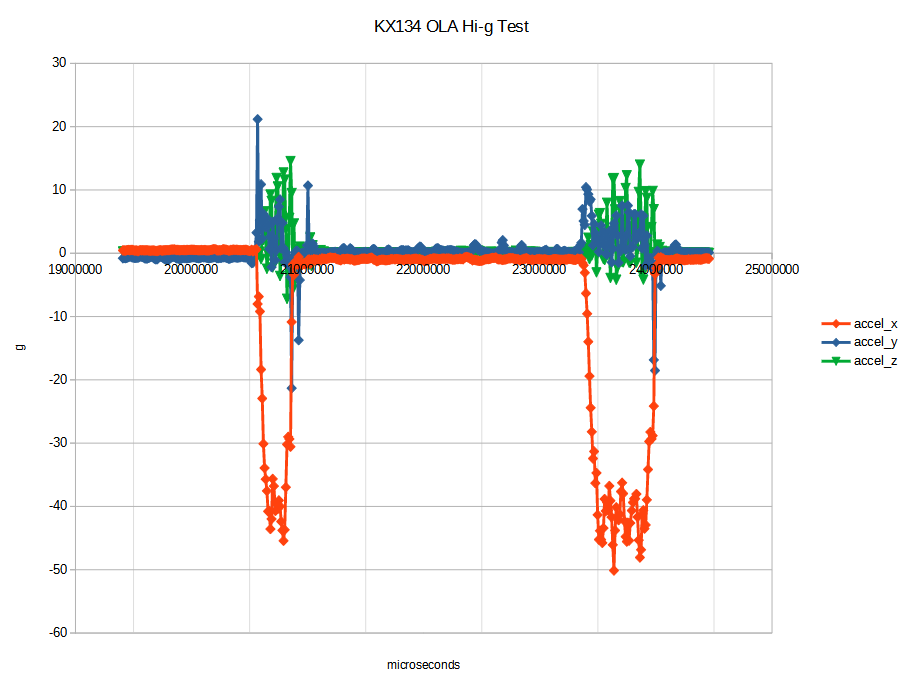-
Notifications
You must be signed in to change notification settings - Fork 11
Bug in setRange #19
New issue
Have a question about this project? Sign up for a free GitHub account to open an issue and contact its maintainers and the community.
By clicking “Sign up for GitHub”, you agree to our terms of service and privacy statement. We’ll occasionally send you account related emails.
Already on GitHub? Sign in to your account
Comments
Merged
Merged
|
Looking good. You're a brave tester, I see! |
|
It went a bit like this: :-D |
Sign up for free
to join this conversation on GitHub.
Already have an account?
Sign in to comment


Hi Eli @edspark ,
Just a heads-up that I've found a bug in
setRange. Long story short: I added support for the KX134 to the OLA; @VancouverUmbrella tested it in his glider and was seeing the accel data max out at 8g with 64g-mode selected.sparkfun/OpenLog_Artemis#144 (comment)
The bug is two-fold:
setRangeisn't doing a read-modify-write; and the wrong bits are being set (0&1 instead of 3&4):SparkFun_KX13X_Arduino_Library/src/SparkFun_Qwiic_KX13X.cpp
Lines 157 to 181 in 3b4b66b
I've fixed this in the release_candidate branch - but haven't tested it yet. (I've run out of time today.)
Please don't be horrified if you look at the number of commits. I've updated the code so it uses the register bitfields you included (thanks!), instead of having 'duplicate' hard-coded bit definitions in the .cpp. It's a big change but makes the code a lot nicer.
Just FYI, there were other gremlins in there too, mostly to do with data being OR'd into the registers. That sets bits, but can't clear them. The bitfields allow setting/clearing in a single call.
I've also updated
getRawAccelDataso it can cope with data in the buffer being 8-bit as well as 16. In my mind the new code works, but is currently untested.I'll test this tomorrow - probably by sticking the OLA and KX134 in an electric drill and taking it for a spin! - and then ask you to review the changes.
Thanks!
Paul
The text was updated successfully, but these errors were encountered: